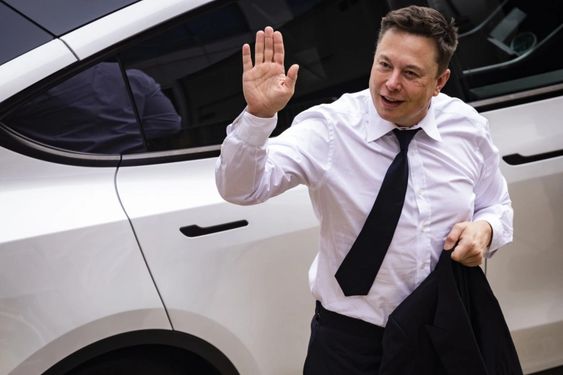World
Pentagon reveals Elon Musk-related military contract

The multibillionaire businessman is nonetheless certain that the Starlink network shouldn’t “participate in combat.”
As part of its brand-new “Starshield” programme, SpaceX has agreed to its first contract with the Pentagon to supply satellite services. Although it appears to rely on the current satellite network, CEO Elon Musk billed the initiative as a military alternative to the “civilian” Starlink system.
Musk responded to rumours that SpaceX had secured a deal with the US Space Force in a post on X (previously Twitter) on Wednesday, reiterating that the Starshield project will be “owned by the US government and controlled by [the Department of Defence].”
In reference to the use of the satellites in Ukraine throughout the conflict with Russia, he said, “Starlink needs to be a civilian network, not a participant in combat,” and added, “This is the right order of things.”
Nevertheless, the new Space Force deal will see SpaceX effectively leasing out part of its Starlink network to the Pentagon, offering service over the same satellites, according to Bloomberg, despite Musk’s expressed reluctance to get involved in the war.
The contract, which has a maximum price of $70 million, “provides for Starshield end-to-end service via the Starlink constellation, user terminals, ancillary equipment, network management and other related services,” an Air Force spokeswoman told Bloomberg News.
According to the publication, as part of the Space Force’s “Proliferated Low Earth Orbit” programme, which aims to reuse existing communications satellites for military use, Musk’s aerospace company is currently vying for almost $1 billion in Pentagon contracts that continue beyond 2028.
US officials have criticised Musk for SpaceX’s actions in Ukraine after it was claimed that Musk rejected Kiev’s requests to utilise the Starlink network to support attacks on Russia’s Black Sea fleet the previous year. Earlier last month, the billionaire’s biographer Walter Isaacson disclosed that Musk had created a “military version of the Starlink” as a means of getting rid of the endeavour.
“I’ve spoken with him throughout the entire ordeal, and late one night he asked, ‘Why am I in this war?’” I, you know, built Starlink so folks could unwind and watch Netflix movies and play video games, the man added. In comments to the Washington Post, the author said, “I did not want to write something that may spark a nuclear war.
Musk “decided to sell and give total control over a certain amount of Starlink equipment… to the US military so that he no longer controls the geofencing,” Isaacson continued, referring to the geographical restrictions that can be placed on the satellite network.
Musk previously asserted that SpaceX was unable to expand Starlink’s reach into Crimea because of American sanctions against Russia, claiming the company is “not actually allowed to turn on connectivity to… the country without explicit [US] government approval.” He has, however, added that he did not want to be “complicit in a major act of war and conflict escalation,” which suggests that the choice was not made primarily because of US limitations.
